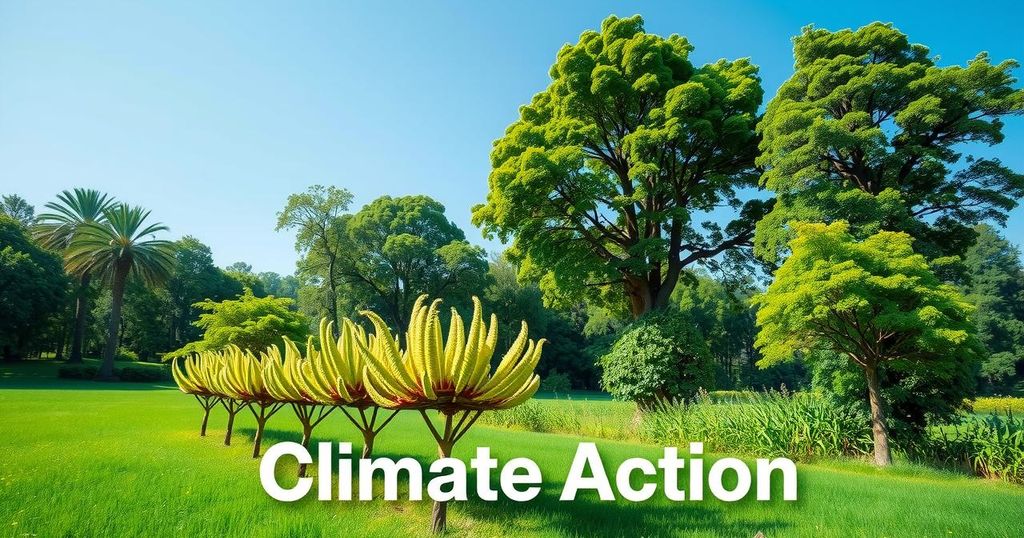Ahead of COP 30 in Belem, Brazil, India is insisting on increased climate finance contributions from developed countries. Their concerns center on existing funding gaps that threaten the ability of developing nations to meet climate goals. Emphasizing equity and historical accountability, India seeks a climate funding roadmap that fosters practical climate action and strengthens financial commitments.
India is ramping up its call for greater climate finance contributions from developed nations ahead of COP 30, scheduled for this December in Belem, Brazil. A key focus lies on the so-called “Baku to Belem Roadmap to 1.3 Trillion,” which India believes is essential for ensuring that developing countries can meet their Nationally Determined Contributions (NDCs). Without adequate financial support, these countries may struggle to fulfill even their basic climate commitments, let alone raise their ambitions for future NDCs.
In a robustly worded submission to the UN Framework Convention on Climate Change (UNFCCC) on May 27, India urged that climate finance must flow from wealthier nations to the developing world, emphasizing that strategic use of public capital is vital to attracting private investment for climate initiatives. They also noted the risks posed by excessive borrowing, which can undermine a nation’s fiscal stability. India insists that any roadmap must translate these financial needs into meaningful, concrete actions for developing countries.
India particularly pointed out the alarming gaps between current climate financial commitments and what developing nations need to meet their 2030 goals. Their submission stressed, “Without sufficient climate finance, even the proposed NDCs would not fructify, leave alone any enhanced level of ambition in future NDCs. This indicates a clear unwillingness from developed countries to fulfill their responsibilities.” Such concerns echo the sentiments expressed at COP 29, where significant tensions arose over climate finance discussions, leading to criticism of what India labeled a “stage-managed” agreement.
While there was an expectation at COP 29 to make progress on the New Collective Quantified Goal (NCQG) regarding funding from developed countries, India’s negotiators indicated that the goals outlined fall woefully short. The established target aims for at least $300 billion per year by 2035, but India believes this figure does not truly reflect the financial realities facing developing countries. Chandni Raina, who represents India in these negotiations, pointed out troubling elements of the Baku declaration, calling the proposed mobilization amounts “abysmally poor.”
Furthermore, India has voiced concern over the nature of the climate finance discussions themselves. The latest submission emphasizes that the roadmap should not just be a top-down initiative involving developed states, but should recognize the unique needs and situations of developing countries. India also expressed that past commitments should influence future funding decisions, rooted in the historical contributions each country has made to global greenhouse gas emissions.
The principle of Common But Differentiated Responsibilities and Respective Capabilities (CBDR-RC), established in the 1992 UNFCCC treaty, is key here. The Article explicitly notes that developed countries should take the lead in tackling climate change, a notion India insists must be upheld moving forward. Their submission underscores the necessity for climate actions to not only be ambitious but grounded in equity and practical international consensus.
With the stakes high and an atmosphere of diminishing international aid, India asserts that developed countries must be held accountable for their financial commitments to developing nations. AEvent Coordinator Avantika Goswami highlighted the pressing need for these nations to reinforce their responsibility to fund climate initiatives, reminding us that the Global South cannot relent in demanding this support. As the clock ticks toward COP 30, all eyes are on whether sufficient climate finance can be arranged to help nations in need mitigate and adapt to the impacts of climate change effectively.
India is pushing for a stronger financial commitment from developed nations as it gears up for COP 30 in Belem, Brazil. The country has raised concerns over existing gaps in climate finance, warning that without proper support, developing nations may fail to meet their climate goals. Their call to action highlights the significance of crowding in private investment while stressing the historical responsibilities of wealthier nations. Ultimately, India’s stance is that the roadmap must prioritize practical solutions and equitable approaches to climate funding.
Original Source: www.hindustantimes.com






